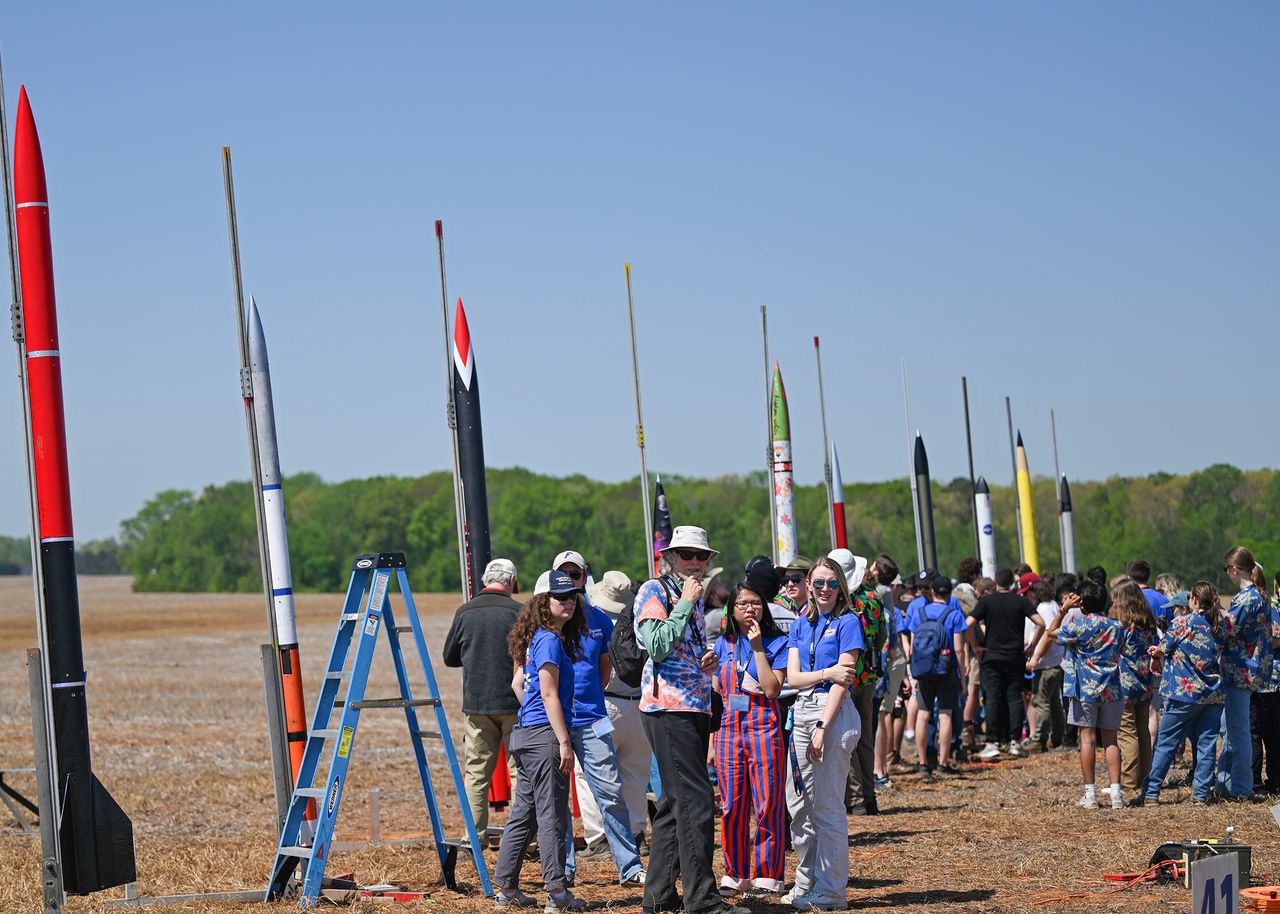UAH wins NASAâs 2023 Student Rocket Launch competition
The University of Alabama in Huntsville is the overall winner of NASA’s 2023 Student Launch challenge, the space agency said today.
More than 800 students from across the country and Puerto Rico launched what NASA called “high powered” amateur rockets in April’s competition. The competition was held on a large farm outside Huntsville in Madison County, Ala.
Teams of middle school, high school, college and university students spent nine months building rockets that could lift payloads between 4,000 and 6,000 feet into the sky, NASA said. The payloads had to perform a scientific or engineering mission and make a “successful landing.”
“Our students share unique perspectives and design innovative technologies to address real-world difficulties of space exploration,” said Kevin McGhaw, regional director of NASA’s Office of STEM Engagement. The launch is 23 years old and helping develop the next generation of engineers and explorers to support NASA missions, McGhaw said.
Second place in the overall competition went to the University of North Carolina at Charlotte and third place went to Vanderbilt University in Nashville.
The same teams won the “Altitude Award” with Vanderbilt first, University of North Carolina second and University of Alabama in Huntsville third.
Auburn University placed in the “Best-Looking Rocket Award” competition behind North Carolina State University and Virginial Polytechnic Institute and State University.
Read the full list of winners here.
Student Launch is one of NASA’s nine Artemis Student Challenges designed to connect students with NASA’s mission of sending astronauts back to the moon, the space agency said.
“Student Launch is an authentic learning experience – one offering students experience working through the same processes NASA and our partners use for safety and quality control of space missions,” Launch leader Fred Kepner said. Kepner is an education program specialist at Marshall.
In addition to NASA, financial and support came from Northrup Grumman, National Space Club Huntsville, American Institute of Aeronautics and Astronautics, National Association of Rocketry, Relativity Space, Bastion Technologies, and Siemens Digital Industries Software.
